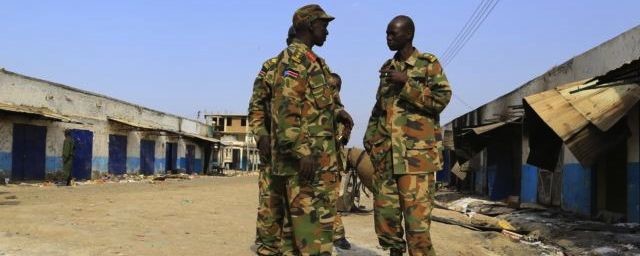Nearly a week after South Sudanese army (SPLA) recaptured Malakal, the city remains desolate and abandoned, with bodies still reportedly littering streets of the city.
Malakal, which was once the country’s second or third largest city, was sacked repeatedly and has changed hands five times in fighting between the rival SPLA factions since December.
Speaking to Radio Tamazuj on Monday, the Malakal County Commissioner Wau Aguet Deng stated the local citizens are unable to return back home following the recapture of the town by the government.
“The Red Cross staffs are working to collect the dead bodies during the day, but in the evening they go to sleep inside UNMISS base,” says the commissioner.
“When the ICRC completes its work on the dead bodies, afterwards I and the state government will talk to the citizens so that they return back home,” he explained.
He noted the town remain entirely deserted and depopulated. Many of the citizens fled across the river to Lol area, or to the north, or took shelter inside the UN base.
He noted the town is witnessing tightened security and heavy deployment of the organized forces.
In a related development, the humanitarian and health situation of the displaced who are currently living in Lol area in Fashoda County has become worse, according to the Fashoda authorities.
Morris Adiang, the Fashoda County Commissioner, told Radio Tamazuj yesterday that the area is accommodating thousands of families amid shortages of essential services.
“I received a report compiled recently by the chief administrator in Lol Payam, in which he cited high mortality rate among the displaced,” said the county official.
“Cases of diarrhoea, cough and other inflammatory diseases have been recorded in the area,” he explained
Adiang attributed the problem to contaminated drinking water and overcrowding of the displaced people. He also called for help in order to provide food and other basic services to the conflict-affect people.
File photo: South Sudan army soldiers talk to each other in Malakal, 30 December 2014 (Reuters)




